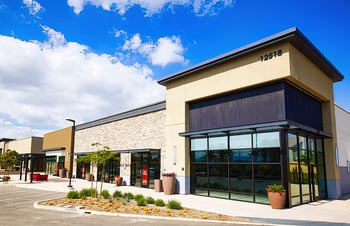By Lucy Barrett, Managing Director, Aria Finance
Things are tough at the moment. Whether you're a lender, broker or borrower, there's no escaping the fact this is a difficult market.
Volatility in swap rates means lenders are finding it hard to price mortgages - even if things have calmed of late - while brokers and borrowers are fretting about securing decent rates before they disappear.
Looking at the bigger picture, there are also growing concerns about whether rising interest rates and soaring inflation will have a negative knock-on effect for affordability and house prices.
Even so, necessity is the mother of invention and while the outlook for the market seems challenging, it does breed the perfect conditions for problem solving and innovation.
Lenders will have to 'complete harder on criteria'
Every lender in the market - big and small - has targets they need to hit. And those targets become increasingly difficult when market conditions are the way they are.
For the past decade, we have experienced a rate-led market, with lenders outcompeting one another almost exclusively on cost.
Those days appear to be gone. Of course, cost will always matter, but in a rising rate environment, lenders will have to compete harder on criteria in order to win new business.
Take buy to let and commercial lending, for example. With mortgage rates rising quickly, landlords are beginning to struggle with affordability. Until rents catch up, landlords may find they struggle to qualify for loans at larger loan-to-values.
The problem is, there is no guarantee rents will catch up - and even if they do, it will be a slow process. In the commercial property market, for example, rents are often fixed for at least three years, and sometimes even for 10, 15 or 20 years.
It means lenders are scratching their heads about where to pitch their stress rates, trying to balance responsible lending with maintaining a steady flow of business.
Variable rate options have come back into fashion after years of five-year fixed rates ruling the roost. But, unless affordability options open up, it's unlikely landlords will be able to cover their existing debt upon refinancing, let alone raise new capital.
This is an area ripe for innovation. I would love to see lenders putting their heads together internally to consider different ways of offering facilities to customers going forward.
Work on innovation needs to be done now
While they may feel busy at the moment trying to manage their backlogs, unless they lay the foundations now, they may find the well beings to run dry.
In my experience, this type of product innovation can take some lenders quite a long time, so work needs to begin now to avoid a future slump.
Being nimble in this market is crucial as clients will still need support. And while purchase activity will slow and refinance will be hampered to an extent, there will be opportunity to continue helping borrowers if the thinking is done quickly enough.
In the past, the mortgage market has been derided by some quarters for a lack of innovation. I can't think of a better time to prove the doubters wrong.






